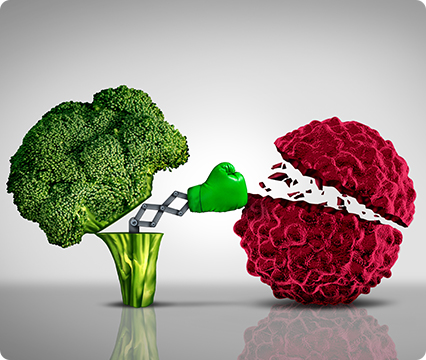Preventable cancer burden associated with poor diet in the United States
This 2019 study estimated the cancer burden associated with diet in the United States using nationally representative data. The plan was to use the reported dietary intake levels, national cancer incidences, and the information on diet’s relationship with cancer risk (based on meta-analyses of prospective studies), to estimate the annual number and proportion of new cancer cases attributable to shortcomings on seven dietary factors among U.S. adults (20+ years old). Zhang et al. discovered that in 2015, around 80,110 new cancer cases were connected to suboptimal diets, which accounted for 5.2% of all new cancer reports in that year. Upon further inspection, 4.4% of these cases (67488) were directly linked with dietary factors, while 0.82% (12589) appeared to be mediated by obesity. Colorectal cancer had the highest number and proportion of diet-related cases of all cancer types, with 52,225 instances (38.3%). With regards to age and race, middle-aged men (45-64 years) and racial/ethnic minorities (non-Hispanic blacks, Hispanics, and others) had the highest proportion of diet-associated cancer burden. It was the low consumption of whole grains and dairy products, as well as the high intake of processed meats, that contributed most to the cancer burden. These estimations of more than 80,000 new cancer cases, that were diagnosed in 2015 and associated with suboptimal diet, will hopefully inform healthcare policymakers. The higher incidences of cancer in middle-aged men and racial/ethnic minorities out of all the other age, sex, and race/ethnicity groups should be considered when planning future strategies for reducing the cancer burden in the U.S. [NPID: cancer, diet quality, colorectal cancer, processed meat, whole grains, dairy products]
Year: 2019
 Navigation
Navigation






